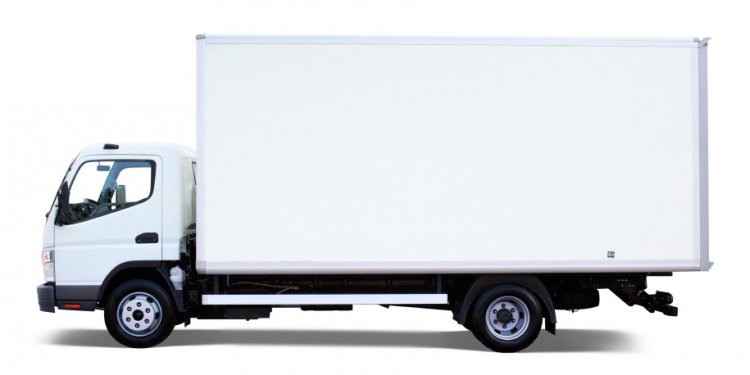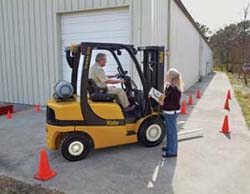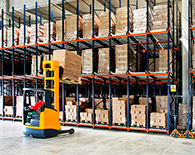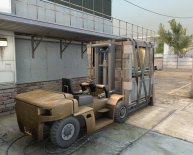
Truck and Forklift Training
The standard requires employers to develop and implement a training program based on the general principles of safe truck operation, the types of vehicle(s) being used in the workplace, the hazards of the workplace created by the use of the vehicle(s), and the general safety requirements of the OSHA standard. Trained operators must know how to do the job properly and do it safely as demonstrated by workplace evaluation. Formal (lecture, video, etc.) and practical (demonstration and practical exercises) training must be provided. Employers must also certify that each operator has received the training and evaluate each operator at least once every three years. Prior to operating the truck in the workplace, the employer must evaluate the operator's performance and determine the operator to be competent to operate a powered industrial truck safely. Refresher training is needed whenever an operator demonstrates a deficiency in the safe operation of the truck. Training shall consist of a combination of formal instruction (e.g., lecture, discussion, interactive computer learning, video tape, written material), practical training (demonstrations performed by the trainer and practical exercises performed by the trainee), and evaluation of the operator's performance in the workplace. [29 CFR 1910.178(l)(2)(ii)]
Training Program ContentPowered industrial truck operators shall receive initial training in the following topics, except in topics which the employer can demonstrate are not applicable to safe operation of the truck in the employer's workplace. [29 CFR 1910.178(l)(3)]
Truck-related Topics [29 CFR 1910.178(l)(3)(i)]
- Operating instructions, warnings, and precautions for the types of truck the operator will be authorized to operate.
- Differences between the truck and the automobile.
- Truck controls and instrumentation: where they are located, what they do, and how they work.
- Engine or motor operation.
- Steering and maneuvering.
- Visibility (including restrictions due to loading).
- Fork and attachment adaptation, operation, and use limitations.
- Vehicle capacity.
- Vehicle stability.
- Any vehicle inspection and maintenance that the operator will be required to perform.
- Refueling and/or charging and recharging of batteries.
- Operating limitations.
Trainees may operate a powered industrial truck only:
- Under the direct supervision of persons who have the knowledge, training, and experience to train operators and evaluate their competence.
- Where such operation does not endanger the trainee or other employees.
Refresher training, including an evaluation of the effectiveness of that training, shall be conducted to ensure that the operator has the knowledge and skills needed to operate the powered industrial truck safely. Refresher training in relevant topics shall be provided to the operator when:
- The operator has been observed to operate the vehicle in an unsafe manner.
- The operator has been involved in an accident or near-miss incident.
- The operator has received an evaluation that reveals that the operator is not operating the truck safely.
- The operator is assigned to drive a different type of truck.
- A condition in the workplace changes in a manner that could affect safe operation of the truck.
The certification must include:
- Operator name.
- Training date.
- Evaluation date.
- Name of person(s) performing the training or evaluation.
 Figure 2. Operator being trained on working on a loading dock.
Before developing your operator training program, you should become familiar with the OSHA standard for powered industrial trucks and any operator's manuals for the equipment in your workplace.
Figure 2. Operator being trained on working on a loading dock.
Before developing your operator training program, you should become familiar with the OSHA standard for powered industrial trucks and any operator's manuals for the equipment in your workplace.
- Identify the types of powered industrial trucks in your workplace and those employees who will be required to operate the vehicles.
- Identify your training methods.
- Develop the content for your training program.
- Provide for employee evaluation.
- Include refresher training.

















